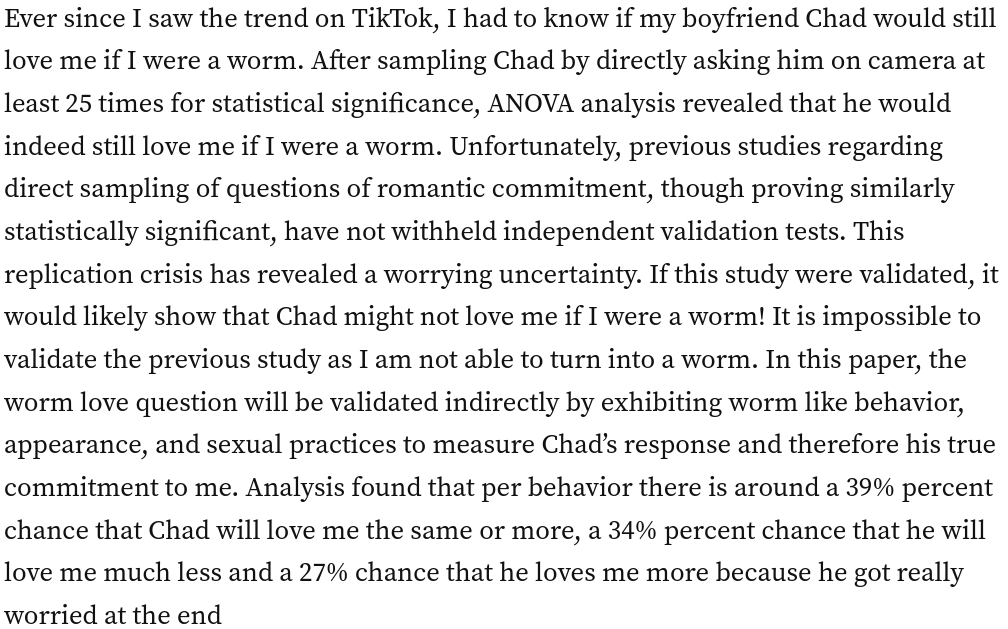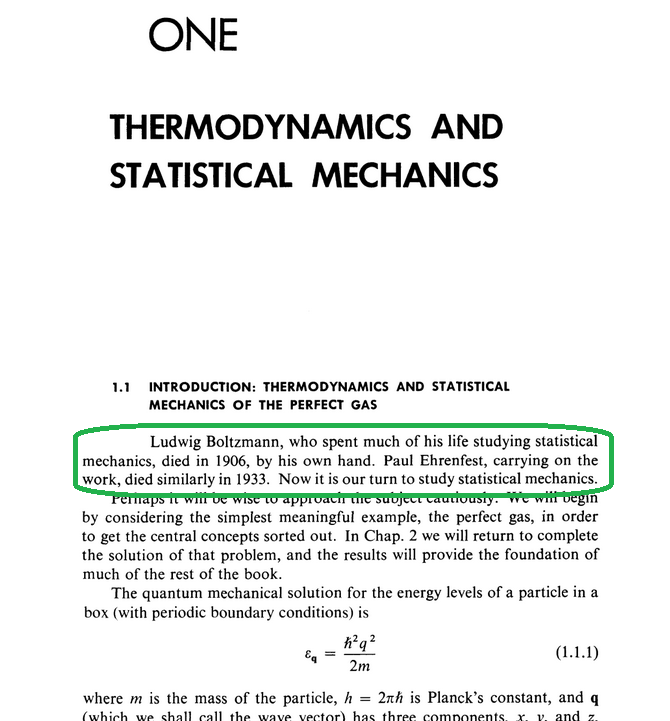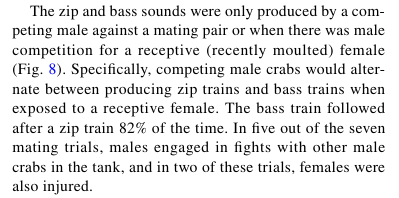Academia Gone Wild
322 readers
1 users here now
A community for funny, quirky, and downright bizarre excerpts from peer-reviewed academic journals and scholarly textbooks. This is not an NSFW community, nor is it a place to make fun of the authors who dedicate immense time and effort to forwarding their respective fields. We're laughing with them, not at them.
Rules
The rules are subject to change, especially upon community feedback.
- Content – Posts should be a screenshot of an excerpt from a peer-reviewed academic article or a scholarly book which you find funny, quirky, or bizarre in some way. This excerpt should be no larger than about one paragraph. The text should be easily legible.
- If the excerpt is a figure, it should include both the figure itself and the caption explaining what the figure represents.
- Sourcing – The post body must provide information about the excerpt's source. This can be a URL to a webpage on the publisher's website containing this information (or a repository like JSTOR if the article's publisher has no such page); otherwise, you can provide the information yourself. Any formatting of this pseudo-citation is acceptable as long as it's comprehensible. If not using a URL, this information includes at minimum:
- For peer-reviewed academic articles: the title, year published, first listed author's name (or both names if there are only two authors), and the name of the journal (volume, issue, page(s), and digital identifier(s) optional).
- For scholarly books: the title, year published, first listed book author's/editor's name (or both names if there are only two authors/editors), edition (if multiple), publisher, page number, and ISBN. No Amazon links.
- Accessibility – For accessibility purposes, any posts which are images of text must include a full transcript of the excerpt in the body of the post. Embedded images should also have alt-text.
- For figures, this should include a transcript of the caption as well as a brief description of the part(s) of the figure you think is/are noteworthy (pretend you're talking to a blind friend).
- Non-English-language excerpts are allowed, but the post body must contain both a transcript from the original language and a reasonably accurate translation into English.
- Piracy – Links to, requests for, and advice on obtaining illegally hosted copies of the paper or book are subject to removal and a ban. If the source can be accessed online freely and legally (e.g. through ResearchGate, universities and museums, Google Books/the Internet Archive, open-access databases like PubMed Commons, etc.), you are welcome and encouraged to include a link in the post body.
- Predatory journals – Please try to avoid predatory publishers like MDPI. This isn't a strict rule so much as something to keep an eye out for, as these sorts of publishers tank academic credibility for profit and can misinform readers with sometimes-questionable science.
- All Lemmy.World Terms of Service also apply.
founded 3 weeks ago
MODERATORS
1
2
3
4





